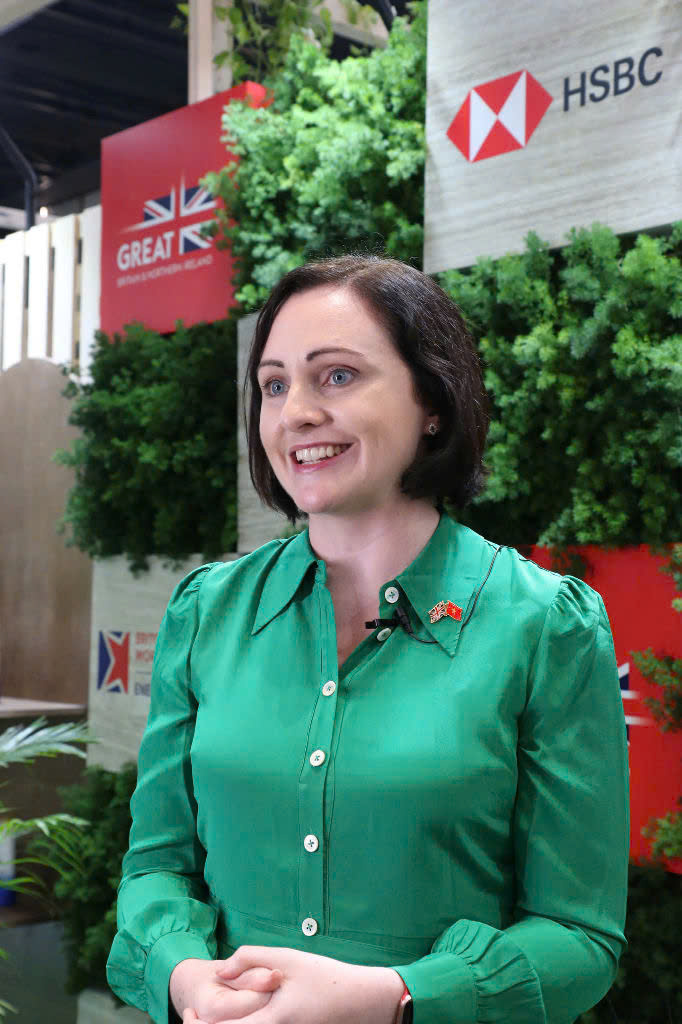The UK's entry into the Comprehensive and Progressive Agreement for Trans-Pacific Partnership (CPTPP) presents an opportunity for Hanoi and London to expand their markets in an increasingly competitive world, said Rhiannon Harries, Deputy Trade Commissioner of the UK.
Harries told Tuoi Tre News that Vietnam is a vital market in Southeast Asia, aligning closely with the UK government's economic growth priorities.
Signed in March 2018, the CPTPP is a landmark trade agreement involving 11 countries: Australia, Brunei, Canada, Chile, Japan, Malaysia, Mexico, New Zealand, Peru, Singapore, and Vietnam.
On December 15, the UK officially joined the partnership as its 12th member.
“ASEAN is currently the fifth-largest economy in the world and is set to become the fourth-largest by 2028. That’s why we are committed to deepening our trade relationships with this fast-growing region, including Vietnam,” Harries stated.
The UK-Vietnam trade relationship is valued at £6 billion (US$7.5 billion). Clean energy and infrastructure are key sectors that will further strengthen bilateral trade.
With substantial wind and solar power potential, Vietnam aims to increase the scale of its green economy to $300 billion by 2050 from $6.7 billion in 2020, presenting a promising market for energy multinationals.
As the UK has the largest offshore wind market in Europe and the second-largest in the world, Harries strongly believes that it is well-placed to partner with Vietnam and Southeast Asia in developing energy solutions suited to the region.
Furthermore, the UK’s inclusion in the CPTPP will facilitate deeper participation in supply chains and diversify bilateral trade.
The CPTPP is expected to complement the existing UK-Vietnam Free Trade Agreement by upgrading the bilateral relationship with additional preferential tariffs and opening up new opportunities for collaboration on shared priorities such as sustainable growth and economic prosperity.
CPTPP benefits small businesses
To promote their involvement in the CPTPP, British Consul General in Ho Chi Minh City Alexandra Smith wants to encourage small- and medium-sized enterprises (SMEs) from both countries to focus on new advantages.
“SMEs make up 99 percent of businesses in both the UK and Vietnam…They are the backbone of our economies and key engines of growth and sustainability,” Smith pointed out.
According to Smith, the CPTPP secures modern and comprehensive investment rules, providing greater certainty to UK investors looking to invest in Vietnam and vice versa.
UK companies are increasingly aware of the opportunities in the Vietnamese market, particularly in areas such as clean growth, health, education, financial and professional services, and technology.
With a population of around 100 million, a rapidly expanding middle class, and impressive economic growth, Vietnam represents a substantial consumer base with a growing demand for British products.
For example, UK food and beverage exports to Vietnam reached £126 million ($158 million) in 2023, a 97-percent increase over four years.
The main items with a growing interest are whisky, frozen seafood, and British confectionery.
“I am keen to work closely with Vietnam to help our SMEs understand and access the range of opportunities that Vietnam has to offer,” she stated.
UK helps Vietnam build international financical center
The UK is working with TheCityUK, which represents UK-based financial and related professional services, to support Vietnam in developing an International Financial Center (IFC).
TheCityUK provides reports generated from experts in developing international IFC locations.
The report will include suggestions on regulatory reform changes that should be made in Vietnam's financial sectors.
Like us on Facebook or follow us on Twitter to get the latest news about Vietnam!
















































